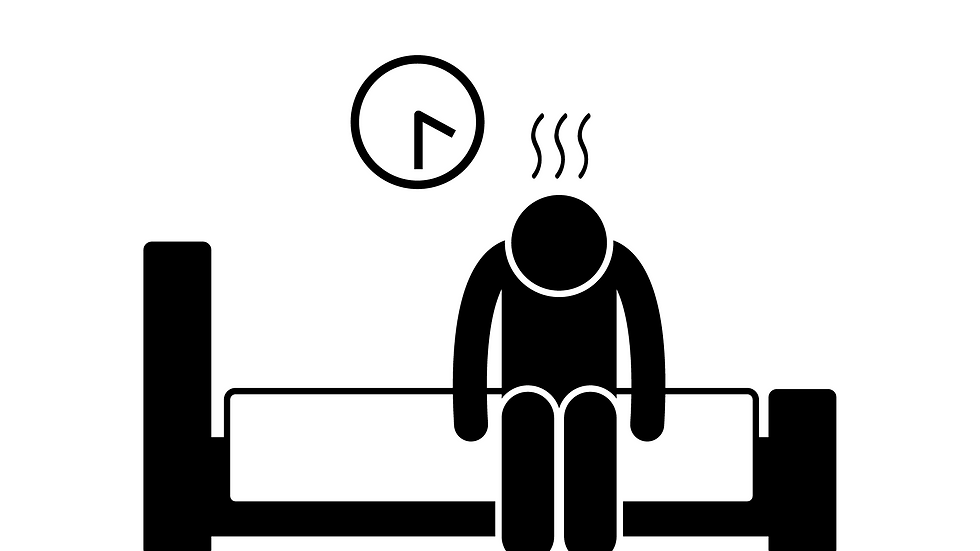HOW TO SUPPORT HORMONAL HEALTH WITHOUT HAVING TO DO A BLOOD TEST !
- Nov 20, 2023
- 4 min read
(And without having the help of supplements) (which do really help BTW).
Here are some easy tips, that anyone can use.
But just remember: we’re all different - what works for others, might not work for you…

EXERCISE
Exercise modulates systemic and local levels of stress, sex, and metabolic hormones. In addition to the release of these steroid hormones, the adaptive response generated by physical exercise is associated with an increased circulation of hormones that control many other aspects of the metabolism.
Moreover, hormonal systems change dramatically throughout your life and exercise benefits hormonal balance and neuroplasticity at all stage of life!
This is because exercise is particularly powerful in activating the endocrine system, which boosts the production of multiple hormones, such as:
· Testosterone
· Oestrogen
· Cortisol (stress)
· Serotonin
· Dopamine
· Adrenaline
· Human Growth Hormone (HGH)
· Glucagon and Insulin
For example, exercise reduces levels of the body's stress hormones, such as adrenaline and cortisol. But it can also decrease excess circulating estrogen levels, improving symptoms of PMS and other oestrogen-dominant conditions.
WHAT TO DO Incorporating multiple kinds of exercise, a mix of high- and moderate-intensity workouts (lifting weights won’t make you look bulky ladies) with some light exercise, such as yoga, into your weekly routine, is essential for developing or maintaining balanced hormones.
SLEEP
What you might not know is that sleep impacts your hormones (including those related to stress, metabolism, and even hunger), and hormone levels impact your sleep.
The circadian rhythm controls hormonal rhythms, such as melatonin, insulin, glucagon, cortisol, and oestrogen, and Sleep disturbances/deprivation increase the risk of obesity, diabetes, insulin insensitivity, and dysregulation of leptin/ghrelin, which negatively impact human health.
WHAT TO DO
Consistent exposure to morning sunlight can help regulate your sleep patterns and improve the quality of your sleep. By establishing a natural wake-up signal, your body becomes more synchronized with its internal clock, leading to better sleep at night.
NOURISH YOUR THYROID
iodine & selenium are required for thyroid hormone synthesis and function. These essential trace elements work together to ensure that the thyroid functions optimally.
Iodine deficiency, for example, is considered as the most common cause of preventable brain damage in the world.
WHAT TO DO
To give a little booster to your thyroid - Eat Brazil nuts (selenium), but not too much, nor too little…, (this is where a lab test comes in handy) + seaweed snacks, kelp, wakame salad or oysters….
REDUCE GLUCOSE LEVELS
Why? What is the benefit of reducing blood sugar?
In people without diabetes, achieving target blood sugar levels has several key health benefits:
prevent weight gain, or achieve weight loss goals.
Reduces the risk of insulin resistance and type 2 diabetes.
Reduced stress hormones and inflammation.
WHAT TO DO
Go on a brisk walk or dance around after a high carb meal.
The good news is that the efficacy of a post-meal walk happens immediately. In fact, a 30 min. walk, within 30 minutes after a meal, can lower your blood sugar levels 50 x more than being sedentary…
MAGIC MAGNESIUM
Magnesium is involved in more than 300 biochemical reactions that benefit your heart, nervous system, and HORMONES…Still, many people, most people, are deficient. Because our soils are depleted of minerals and vitamins, and/or, because our cells use a lot of it during stressful periods. Chronic stress anyone ?
I prescribe magnesium A LOT (no need to do a blood test for this one) because everyone needs it. And it makes people feel better almost immediately. Magnesium works on many levels to help bring your system into balance. It is useful in balancing thyroid conditions, adrenal imbalance, premenstrual, perimenopausal issues, improves sleep, reduces stress, to name a few…
Magnesium is essential for the production of steroid hormones such as testosterone, DHEA, progesterone and oestrogen. It has been shown to slow down the aging process by enhancing glutathione production, preventing telomere shortening and reducing oxidative stress.
WHAT TO DO
One way is to bathe in Epsom salts, (high in magnesium and sulfate ions)
The Epsom Salt Council recommends pouring 1 to 2 c of Epsom salt into your bathtub while it fills up with warm water. It suggests soaking in an Epsom salt bath for at least 10 to 15 minutes to reap the potential benefits. But there's no official recommendation for how often you should take an Epsom salt bath.
What I also recommend is taking a good quality magnesium supplement (associated with taurine and vit B6) and many are available. It’s important to consider the absorption rate before making a purchase.So, how much? Approximately 350mg/day.
For how long? it depends on stress levels…. If you are chronically stressed, better stick with it for a while.
DIET CAN SCREW UP YOUR HORMONES
There is no such thing as a healthy diet that will work for everyone.
People respond to food in such individual ways that everybody needs a personalised eating plan. Sex, age (hormones), stress, the microbiome and lifestyle factors all effect metabolism and hormonal balance in different ways.
WHAT TO DO
Be careful of what you see and hear.
CUT THE CAFFEINE (WHILE BOOSTING YOUR MICROBIOME)
Switch regular coffee for Chicory coffee. IT contains no caffeine…
Drinking less coffee or even eliminating caffeine entirely can help reduce menopause symptoms such as anxiety, headaches, poor sleep, etc.
Less caffeine might also increase your ENERGY, especially if your adrenal glands are fatigued*.
Chicory contains inulin, and inulin fiber (dose-dependently) modulates energy balance, glucose tolerance, gut microbiota, and hormones. It has also been linked to belly fat loss and reducing inflammation.
*Drinking too much coffee, too often, can overload our bodies with cortisol (stress hormone), and our adrenal glands can become overworked.
This can lead to fatigue and decreased energy levels.



Comments